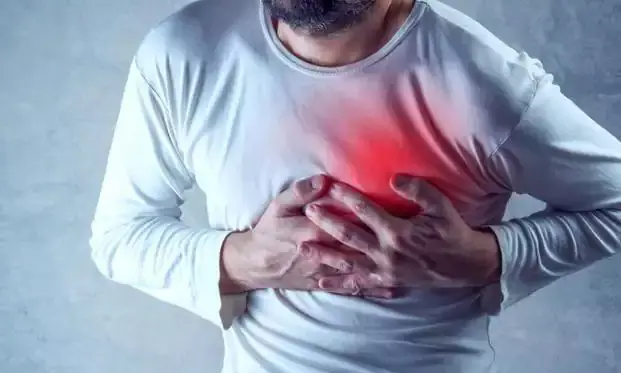
Fit people dying young sparks concern over heart failure post Covid
text_fieldsNew Delhi: Post Covid-19 pandemic, there has been a spate of deaths in India, ranging from school students to seemingly-fit celebrities, mostly due to heart attacks. Are we staring at another pandemic of heart failure?
In the most recent case, a Class IX student, Yogesh Singh, collapsed on his way to the classroom at a private school in Jaipur and succumbed to suspected cardiac arrest. A week earlier, a 13-year-old girl, a Class VII student, died after she suffered a heart attack while walking to school in Karnataka's Chikkamagaluru district.
This comes after several people collapsed at Garba events during Navratri in Gujarat, and at least 10 people reportedly died of heart attacks. The youngest of the victims was reportedly just 17 years old.
Recently, 'Golmaal' actor Shreyas Talpade (47) and Bollywood diva and former Miss Universe Sushmita Sen (47) survived a heart attack, while well-known Telugu actor and dramatist Harikanth passed away at 33 due to a cardiac arrest in July. The list goes on...
According to the recent National Crime Records Bureau (NCRB) report, the number of deaths due to heart attacks increased by 12.5 per cent in 2022 as compared to 2021.
The report noted that 32,457 people died of heart attack in 2022, a considerable increase from the 28,413 deaths reported the previous year. Several studies have connected the virus to poor heart function, post Covid-19.
 Also Read: India records 841 new Covid cases amid JN.1 surge
Also Read: India records 841 new Covid cases amid JN.1 surge
In a most recent study, a team of Japanese researchers predicted the risk of "heart failure pandemic" as a result of Covid-19.
Covid infections have raised the risk of heart failure from persistent viral infection in the heart, even without developing heart disease, said the team, including researchers from Riken, Japan's largest scientific institute, The Mainichi reported.
Post the Covid pandemic, there has been a significant surge in heart attacks, even among the otherwise healthy population.
Although some have linked it to Covid vaccination, global health authorities like the WHO, US CDC, as well the ICMR, have denied the association between the two. Their studies have shown that people without Covid vaccination have been more at risk of heart problems due to Covid, and that the jabs have been safe.
Experts also pointed out several factors that increase the risk of heart attack, such as a high sodium diet, lack of exercise, smoking, binge drinking, sedentary lifestyle, etc.
According to health experts, high haemoglobin levels can also raise the risk of heart attack, stroke and blood clots. Polycythemia is a condition where red cells increase in the human body due to abnormalities in the bone marrow.
These excess cells thicken the blood, slowing its flow and can cause serious problems like blood clots.
"High haemoglobin levels should not be ignored as they can increase the risk of blood clotting and can sometimes lead to dangerous conditions like stroke, heart attack and blood clots in legs and abdomen," said Dr Rahul Bhargava, Principal Director of Hematology and Bone Marrow Transplant at Fortis Memorial Research Institute, Gurugram.
Doctors have also cautioned people to avoid over exercise, citing lingering physical stress and complications.
“Severe Covid survivors often experience lingering physical stress and complications that can significantly impact their overall health and well-being,” Dr Sanjay Kumar, Director & HOD, Cardiology, Fortis Escorts Hospital, Faridabad, told IANS.
These effects may vary from person to person, but some common physical stressors include respiratory challenges, cardiovascular issues, fatigue, muscle and joint pain, neurological symptoms, gastrointestinal problems, olfactory and taste disturbances, Kumar said.
Dr. Ashwani Maichand, Director, Department of Orthopaedics, at the CK Birla Hospital, Delhi, said blind ambition and neglected fatigue can overload muscles, joints, and heart. He called out against “unrealistic exercise trends, inadequate guidance, and ignoring underlying medical conditions”.
“We need a fitness ecosystem that champions informed training, respects individual thresholds, and recognises the red flags of overexertion,” Maichand said.
With agency inputs
























